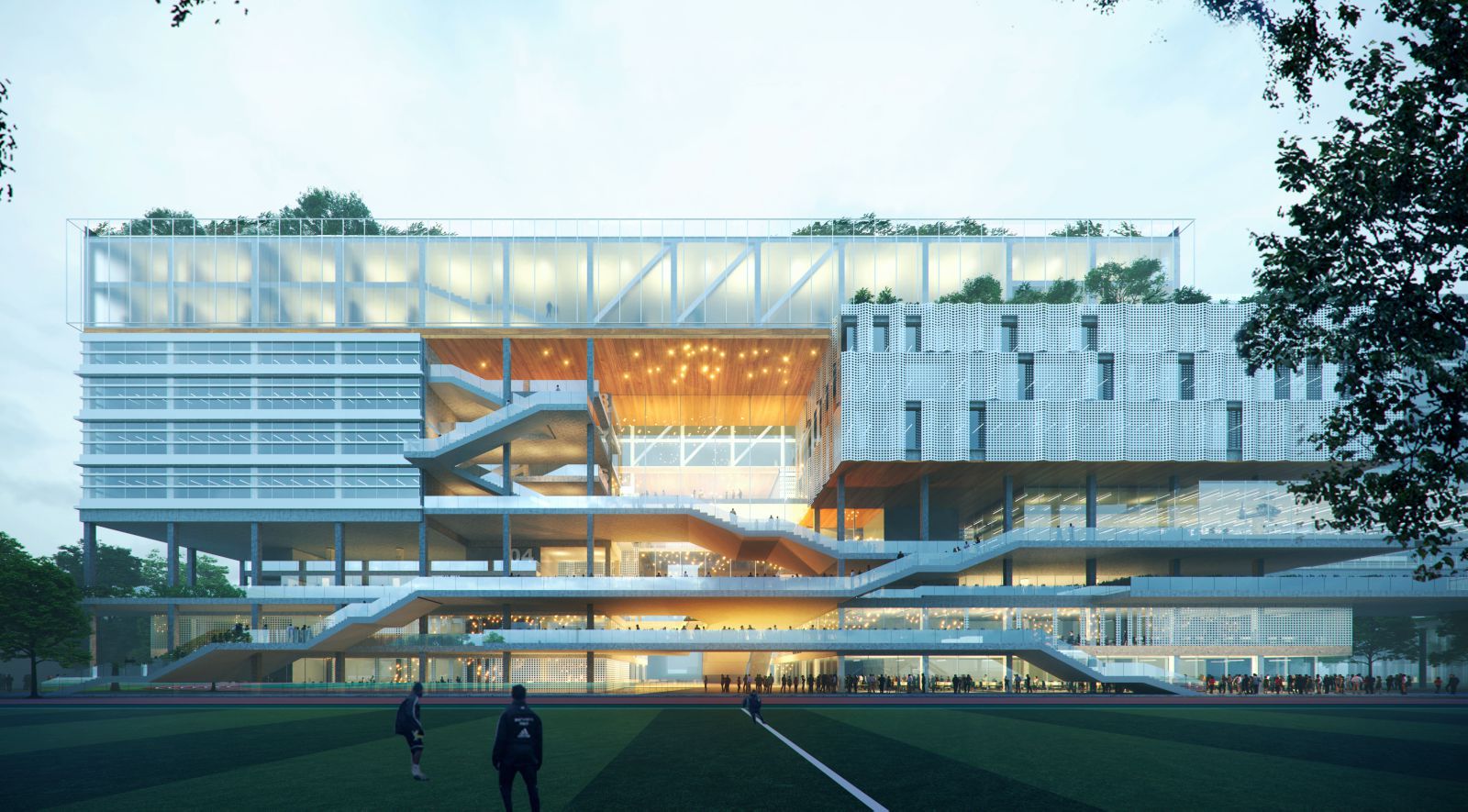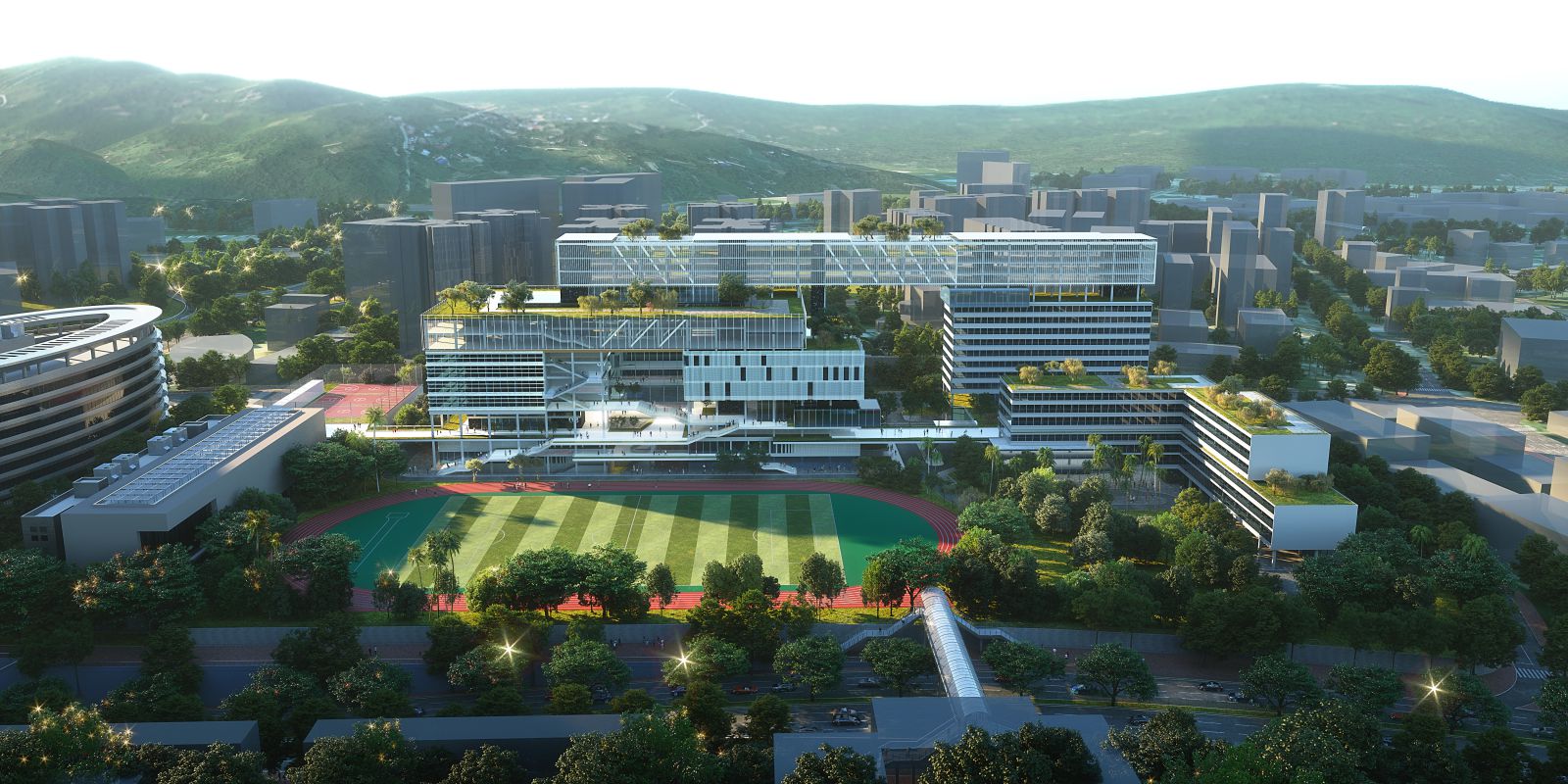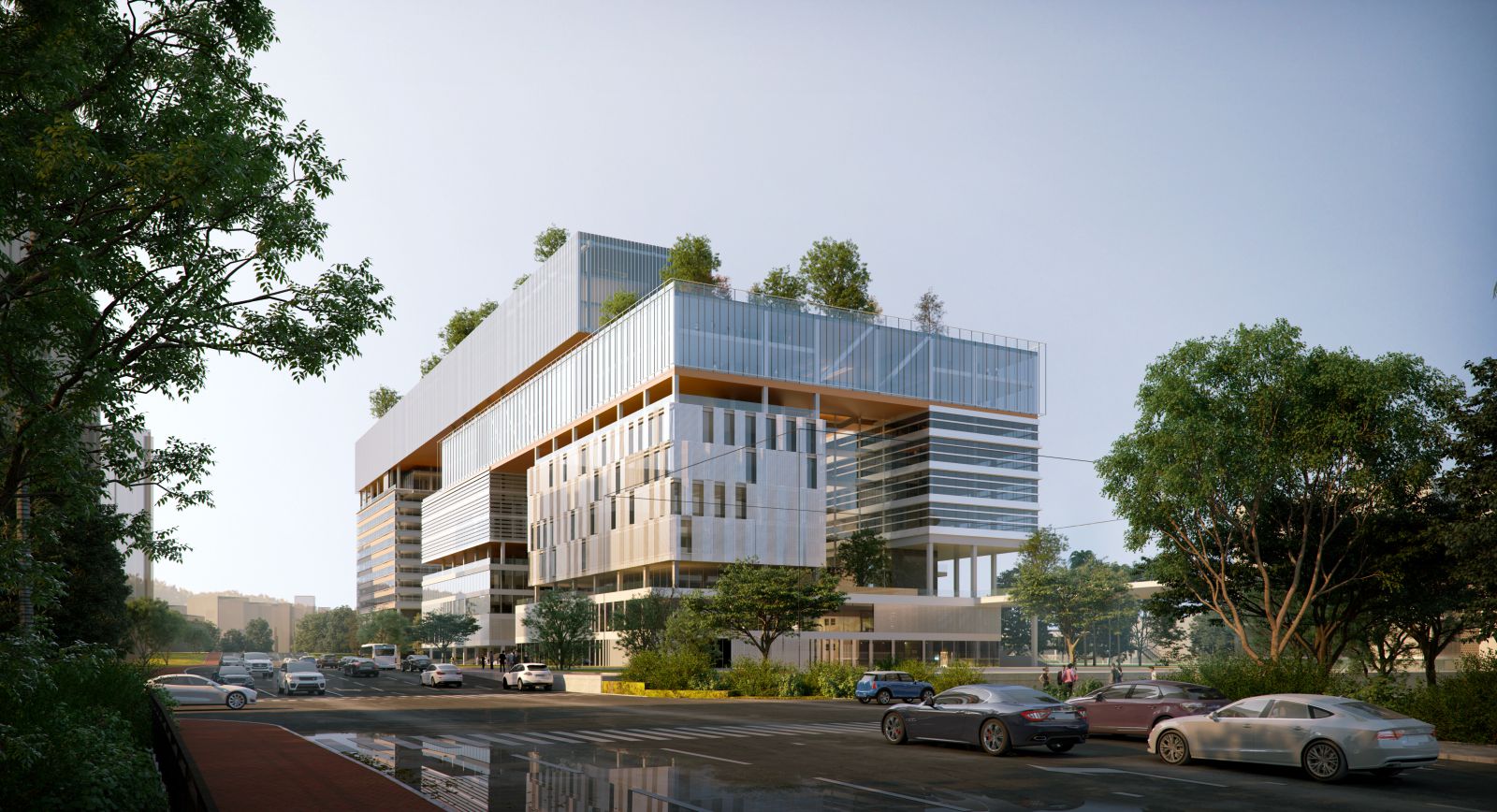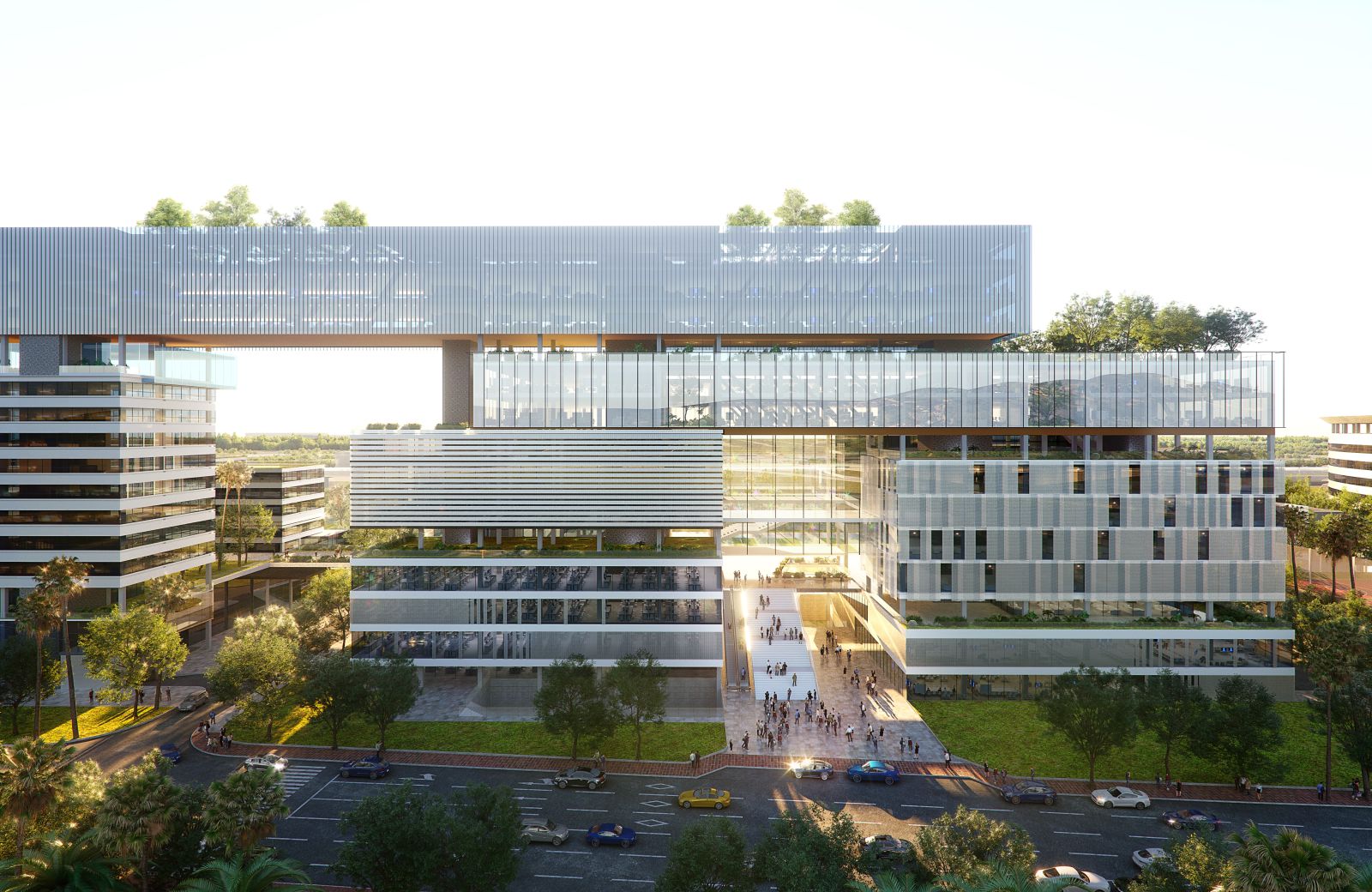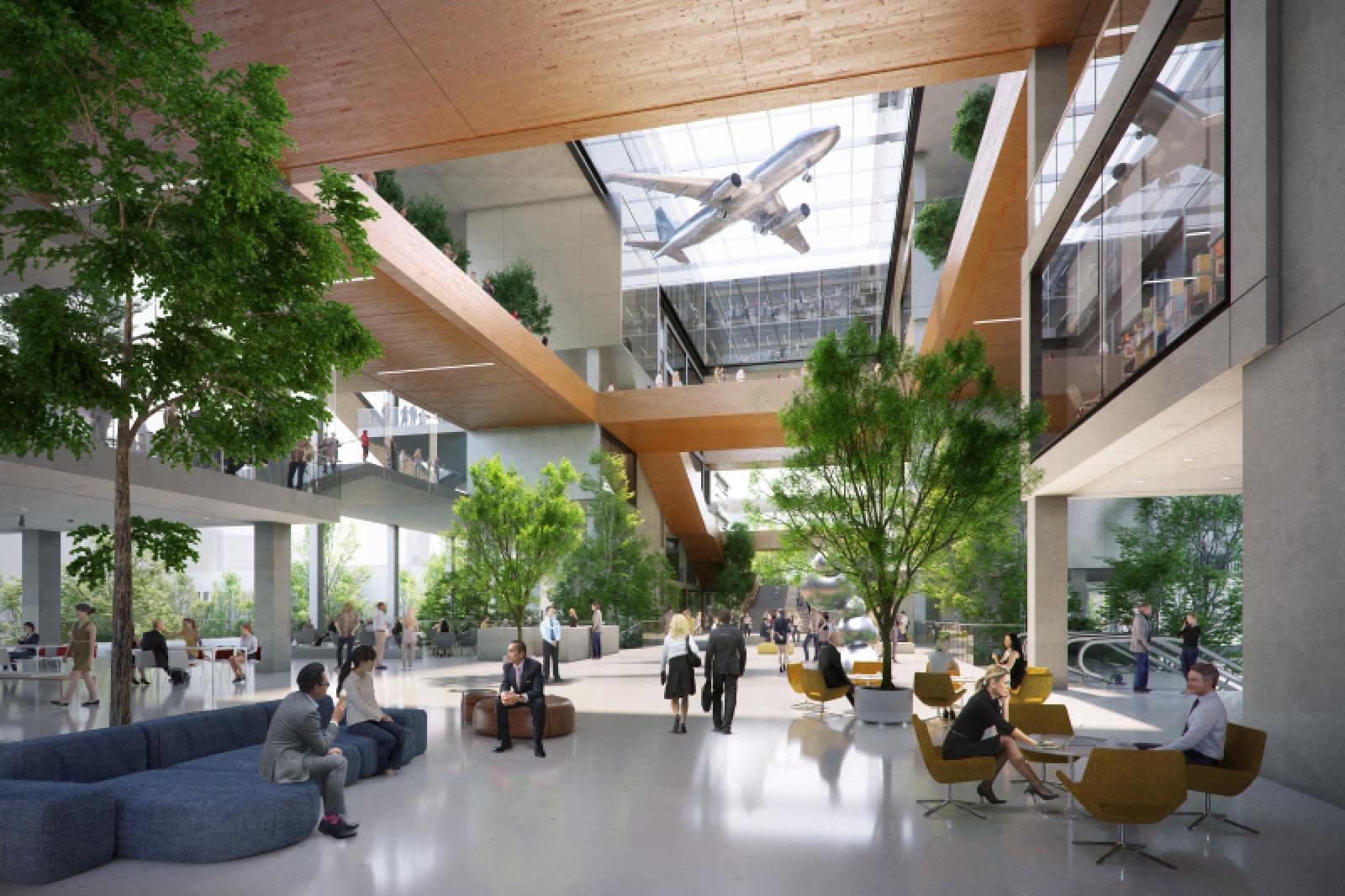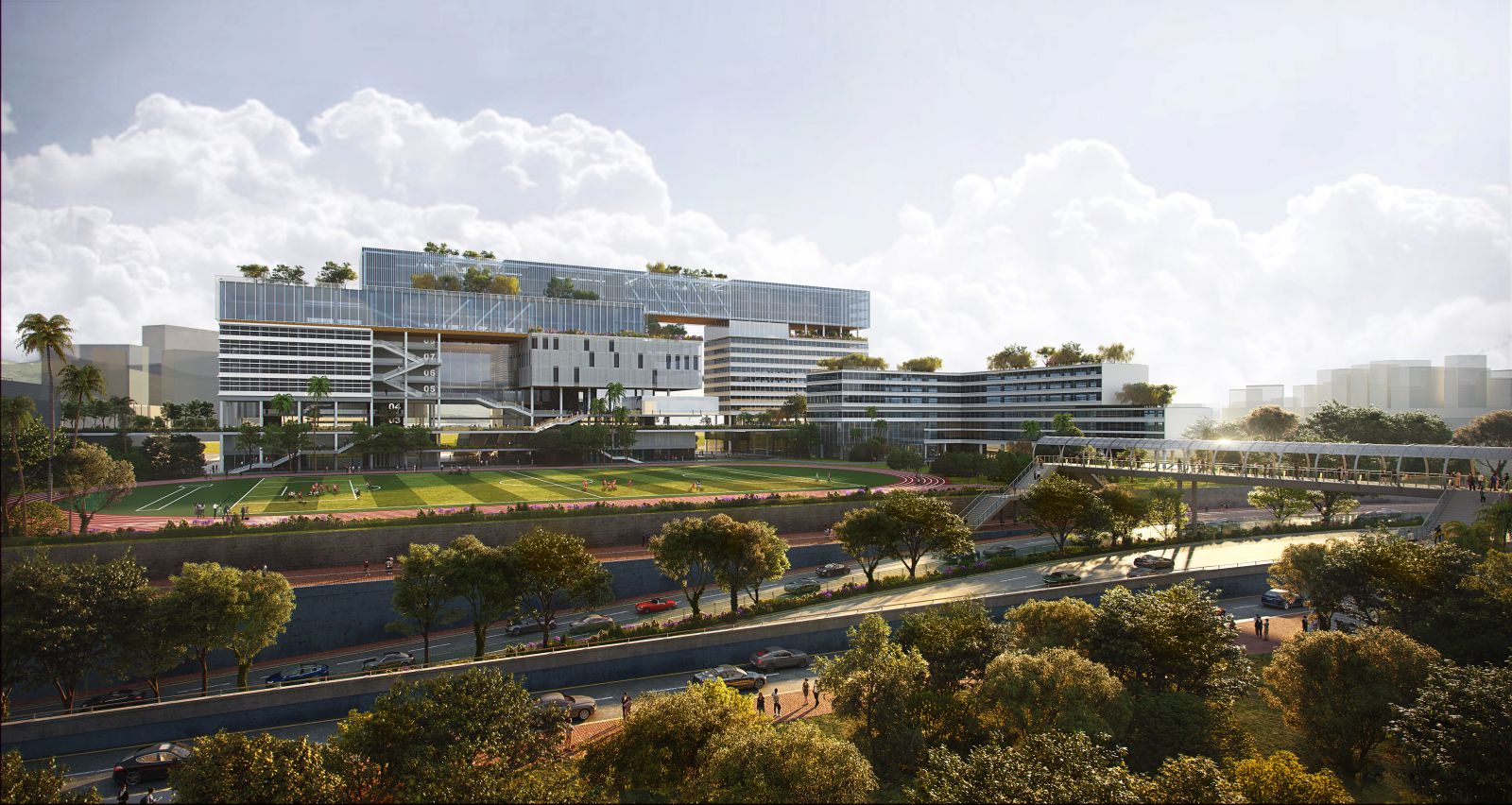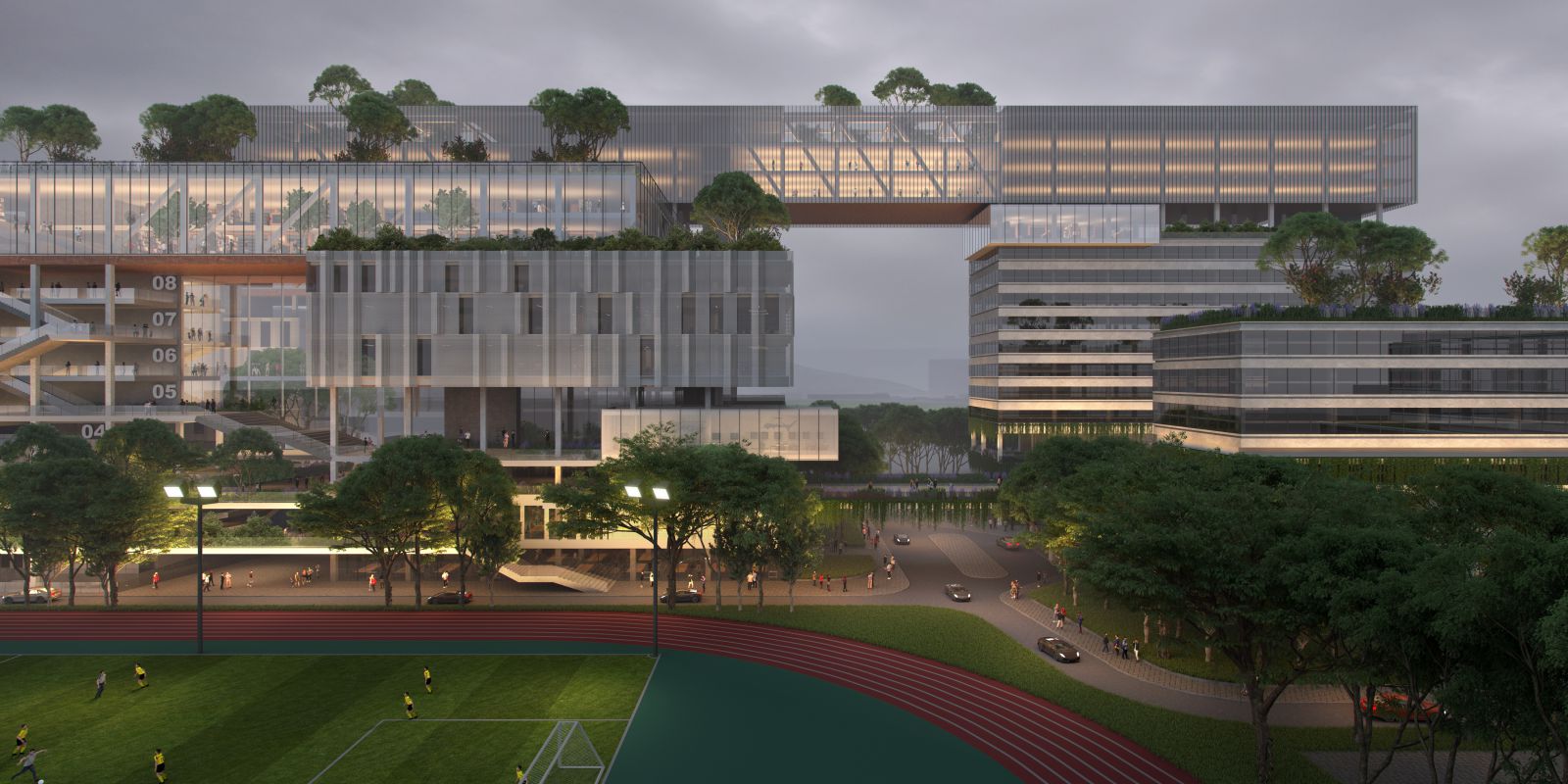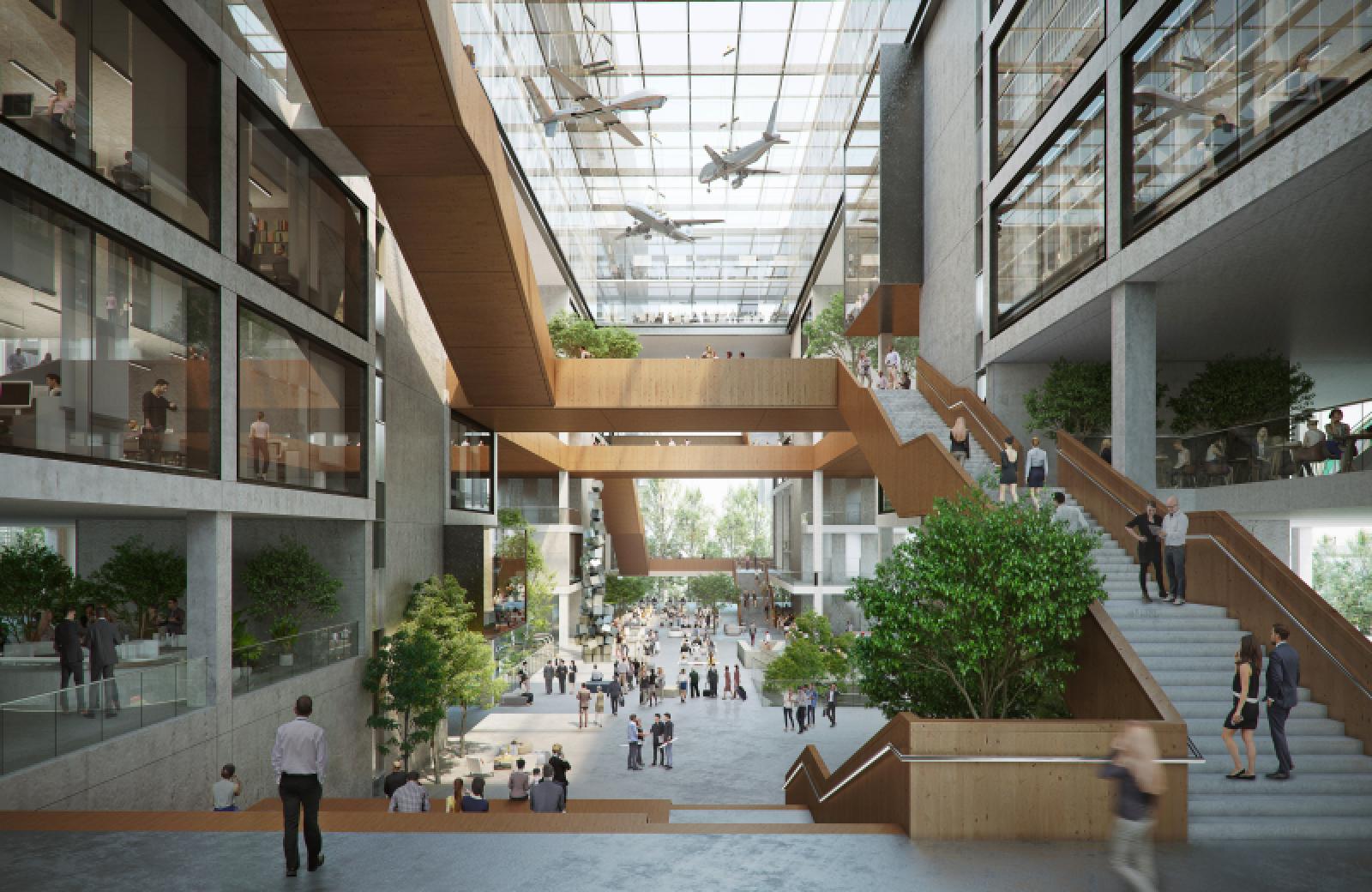Aedas’ innovative scheme came first in the Shenzhen Airport Training Base Design Competition. The design builds an airport education portal that represents the spirit of symbiosis, marrying urban life and training through the provision of rich cultural, sports and public leisure spaces. The project is adjacent to Shenzhen Bao’an International Airport, surrounded by airport facilities and has easy access to railway transportation.
The plot is irregularly shaped, and has a height difference with the surrounding area due to the underpasses on the northwest side of the site. The design accommodates various business functions including office, training, residential, and conferencing, while installing a standard football field with a 400-meter track.
“We hope to integrate urban activities into the project by providing public space for cultural and athletic activities, and giving stronger social attributes to the teaching and training buildings. The overarching goal is to improve the well-being of users.” This vision, articulated by Aedas Executive Director Kelvin Hu, is illustrated by the four central design keynotes—program allocation, connection and sharing, three-dimensional ecology, and view corridors.
Modeled on existing plot conditions, the main building of the training base is partitioned into three clusters—facility, training, accommodation—spread out from north to south. A football field can be found to the west of the programs. Close to the airport information buildings is the facility cluster in the north, connecting the training base and work place; at the centre of the complex sits the training cluster while the accommodation cluster is set on the southeast side of the plot.
Routes and entrances are catered to the different destinations to facilitate independent operation and minimise cross interference. A conference hall is arranged separately on the northeast side, equipped with outdoor basketball courts and tennis courts; it is designed such that there is room for future flexible development.
The design establishes a multi-layered, three-dimensional connection between functions through an extending common public platform that enable mutually inclusive spaces. This sweeping connective thread run through the entire project, including the adjacent information building and its auxiliary.
Effectively engendering a self-contained community, the platform provides a swath of public interactive space with restaurants, cafes, recreational spaces and indoor swimming pools. Embedded in the overarching connective thread, each functional group is also endowed with intra-shared spaces.
The shared spaces such as reading rooms and breakout platforms are distributed across floors in the training cluster, while sports facilities of various ilk are thoughtfully couched to ensure convenient access from all pockets of the development. By way of instituting an untethered teaching atmosphere, a high-rise atrium/alleyway is introduced along the common platform to construct a cavernous space.
Boundaries between indoor and outdoor, by virtue of this addition, disappear into a pleasant mass of wholeness. The design thoughtfully and methodically introduces a composite ecological greening system with vertical eco-gardens extending from ground to the roof park. Courtyards and terraces are distributed in the building to further promote interaction, with a colossal stair system vertically linking public spaces on all floors.
In a retreat-and-descend form, the layered blocks that make up the building volume are by turn transparent and concrete, presenting a visually arresting edifice. This strategy lends the development an optimal perch, producing an unobstructed view corridor toward the airport landscape. From open floors, glazed windows and voids framed by the building structure, visitors from all vantage points could enjoy the view of the green stadium and planes taking off and landing in the distance. Source and images Courtesy of Aedas.

